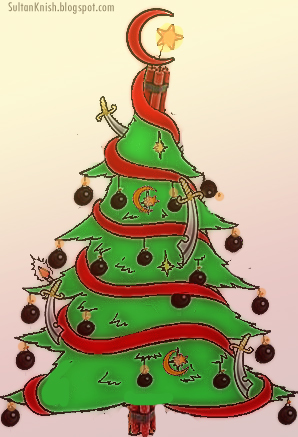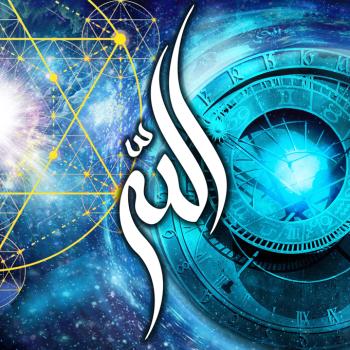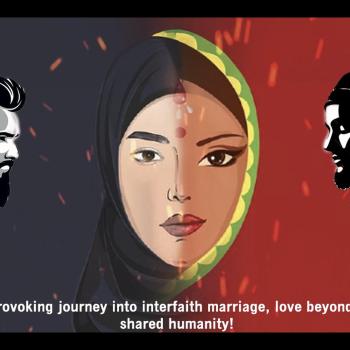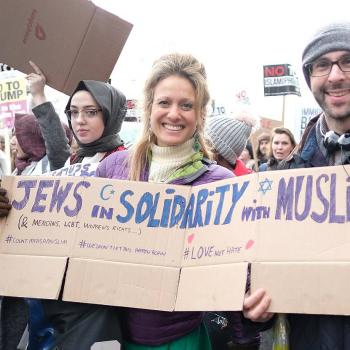
I was raised in a conservative Muslim household. We prayed five times a day and we read the Quran daily. We fasted during Ramadan and we didn’t celebrate Christmas.
We celebrated Thanksgiving, which as thankful Americans and Muslims, my parents didn’t hesitate to embrace. Halloween was an annual debate- some years, we celebrated it wearing costumes, joining parades and even trick-or-treating. Other years, we stayed home, watched movies and ate candy we bought from the store.
Christmas was never part of the debate. Jesus was not the son of God and, although Muslims revered Jesus (AS) as a Prophet, celebrating Christmas was seen as the acceptance of a Christian belief.
I followed this model and it made life easy not having to think about it.
Then I married a man who was born a Catholic and who was an only child. His conversion to Islam twenty years before was a big deal to his staunch Catholic mother. Initially, he went through his bout trying to convince his mother that he was right and she was wrong. He finally stopped, realizing he was in danger of losing his mother and leaving her alone with no family. By the time he met me, he had matured in his faith and in his relationship with her. He understood that his mother’s need for him and his duty to her superseded the haram-ness of “celebrating” a non-Muslim holiday.
I married my husband because I felt he brought me closer to Allah. So when I spent my first Christmas with him decorating his mother’s tree, I felt conflicted. I talked to my husband about the guilt. I told him about what some Muslims (and even some scholars) would say: the celebration of Christmas– or just going through the motions — was haram (forbidden).
My husband asked me if my belief in Allah had changed and if I believed that Jesus (AS) was more than a Prophet. Of course not, I said. He explained to me that he had dealt with all of the complexities of being a convert and had come up with his own set of beliefs that, in his opinion, didn’t contradict with Islam. His Aqidah (creed) was strong. He still believed in one Allah, who was not begotten and did not beget. He disagreed with the fundamental basis of Christmas and even questioned the pagan rituals. Therefore, we didn’t celebrate Christmas in our little house. But, as an only son to his single mother, he owed it to her to be kind and to honor and respect her beliefs. He did what his mother expected him to do on a superficial level because he did not want to hurt her.
She knows that he is Muslim but he is still her little boy. He helps her haul the tree into her house. He helps to decorate it by putting on the lights and by placing ornaments on parts of the tree that she can’t reach. He even places the angel on the top. I help her with the Christmas dinner by preparing the appetizers while she cooks the turkey.
His mother fills the stockings and puts the gifts under the tree and smiles and laughs in anticipation as he opens them. Her happiness is worth a day of being frowned upon by those Muslims who do not have to think about it these things; those lucky enough to forget about the nuances that American Muslims face daily.
Now, four years and two kids later, I watch as my son dances and my daughter crawls near the Christmas tree. I know that I am doing this for Allah. My Allah is loving. I cannot abandon my mother-in-law, who I love just as I love my own mother, during a season she believes is for family and love. My actions would therefore be haram. And who knows, maybe my love and respect for my mother-law may be what it takes for her to one day love and respect my religion? And I ask God to forgive me for my shortcomings because I don’t have the answers and I am always learning.
—-
Some other perspectives:
Michael Muhammad Knight: Being the Muslim at the Christmas Party
Omid Safi: It’s a Yoda-Muslim Kind of Christmas
Dr. Faheem Younus: Why (or how) should Muslim Americans “celebrate” Christmas
Sabina Khan-Ibarra is a freelance writer and editor. She regularly contributes to her blog, Ibrahim’s Tree which she created after the loss of her infant son in 2011. She created Muslimah Montage as a platform for women to share their stories and inspire others. Sabina is also the editor of Hijabulous: Seeing the Veil through the Eyes of American Muslim Women.
Read more from Sabina: Paths To My Heart, Finding My Spirituality ; Birth, Loss & In Between, and Raising a Confident Muslim Child in America.
This post originally appeared at IAmThePoppyFlower.















